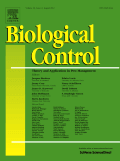
BIOLOGICAL CONTROL
metrics 2024
Pioneering Research in Biological Pest Control
Introduction
BIOLOGICAL CONTROL, published by Academic Press Inc Elsevier Science, is a prestigious journal focusing on the advancement of knowledge in the field of biological pest control and integrated pest management. With a high-impact factor reflecting its significant contributions to agronomy and insect science, it has secured elite positions in both Q1 categories as of 2023. The journal ranks within the top 6% and 12% of its fields on Scopus, making it an essential resource for researchers and professionals dedicated to sustainable agricultural practices and ecological balance. With its comprehensive exploration of theoretical and applied studies from 1991 to 2024, BIOLOGICAL CONTROL serves as a critical platform for disseminating innovative research and promoting dialogue among scholars, students, and practitioners. Although the journal follows a subscription-based access model, it consistently attracts contributions that shape the future of pest management strategies.
Metrics 2024
 0.88
0.88 3.70
3.70 4.00
4.00 123
123Metrics History
Rank 2024
Scopus
IF (Web Of Science)
JCI (Web Of Science)
Quartile History
Similar Journals

NEMATOLOGY
Charting New Frontiers in Nematode ResearchNematology is a prominent journal published by BRILL, focusing exclusively on the multifaceted realm of nematodes and their ecological, agricultural, and biological implications. With an ISSN of 1388-5545, this esteemed journal serves as a vital platform for researchers, professionals, and students dedicated to advancing knowledge in Agronomy and Crop Science and Ecology, Evolution, Behavior, and Systematics. Established in 1999 and continuing its mission until 2024, Nematology holds a Q2 ranking in Agronomy and Crop Science and a Q3 ranking in Ecology as of 2023, indicating its significant impact within these fields. Published in the Netherlands, this journal is accessible through various options, providing vital insights into nematological research and its applications. Researchers from around the globe are encouraged to explore, submit manuscripts, and contribute to the evolving discourse within this specialized yet pivotal area of study.
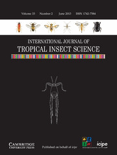
INTERNATIONAL JOURNAL OF TROPICAL INSECT SCIENCE
Uncovering the Secrets of Tropical Insect LifeINTERNATIONAL JOURNAL OF TROPICAL INSECT SCIENCE, published by Springer International Publishing AG, is a leading interdisciplinary journal dedicated to advancing knowledge in the fields of insect science and ecology. With its ISSN 1742-7584 and E-ISSN 1742-7592, this journal provides a platform for researchers to publish high-quality, peer-reviewed articles that explore various aspects of tropical insect biology, behavior, and their ecological impacts. As evidenced by its Q3 ranking in both Ecology, Evolution, Behavior and Systematics and Insect Science, it plays a vital role in fostering scientific dialogue and innovation within these disciplines. Researchers affiliated with the journal benefit from its visibility and growing impact, as demonstrated by its Scopus ranks, with a percentile standing of 61st in Insect Science. Although the journal is not open access, it still reaches a wide academic audience, making significant contributions to our understanding of tropical ecosystems. Situated in Switzerland, this journal is crucial for students, professionals, and researchers invested in the intersection of entomology and ecological science.
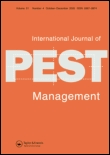
INTERNATIONAL JOURNAL OF PEST MANAGEMENT
Empowering researchers with critical insights into pest dynamics.The INTERNATIONAL JOURNAL OF PEST MANAGEMENT, published by TAYLOR & FRANCIS LTD, is a prestigious academic journal that has established itself as a vital resource in the fields of Agronomy, Crop Science, and Insect Science. With an ISSN of 0967-0874 and E-ISSN 1366-5863, this journal has been disseminating critical research since its inception in 1993 and continues to shape the discourse through to 2024. The journal occupies a significant position in the academic community, currently ranked Q2 in Agronomy and Crop Science and Q3 in Insect Science, based on its impressive Scopus ranks (Agricultural and Biological Sciences: Insect Science rank #33/181; Agronomy and Crop Science rank #109/406). Offering rapid insights into pest management strategies, this journal is essential for researchers, professionals, and students seeking to enhance their understanding of pest dynamics and management practices in an agronomic context. Though it does not provide open access options, its rigorous peer-review process ensures high-quality, impactful publications that contribute significantly to sustainable agricultural practices.
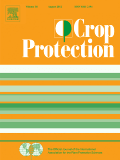
Crop Protection
Championing innovative practices in sustainable agriculture.Crop Protection is a leading academic journal in the field of Agronomy and Crop Science, published by Elsevier Science Ltd, and recognized for its high impact demonstrated by an impressive Q1 quartile ranking in 2023. With its ISSN 0261-2194 and E-ISSN 1873-6904, this esteemed publication has been a crucial source of research since its inception in 1982, continuing to provide valuable insights and advancements in crop protection strategies through 2024. The journal serves a diverse audience, including researchers, professionals, and students, eager to explore pioneering findings in pest management, herbicide development, and sustainable agricultural practices. While the journal does not offer open access options, its rigorous peer-review process ensures the highest quality of scholarly articles that contribute significantly to the agricultural and biological sciences, maintaining its respected position with a Scopus rank of #63 out of 406 in its category, placing it in the 84th percentile. Engaging with Crop Protection not only enriches knowledge but also promotes innovative solutions for global agricultural challenges.
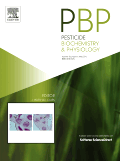
Pesticide Biochemistry and Physiology
Championing high-quality research for food security and environmental safety.Pesticide Biochemistry and Physiology, published by Academic Press Inc Elsevier Science, is a prominent peer-reviewed journal dedicated to advancing knowledge in the fields of agronomy, crop science, and the toxicological effects of pesticides. With an established history since 1971, this journal aims to provide a platform for researchers and professionals to share groundbreaking studies that bridge the gap between agricultural practices and environmental health. Holding a remarkable Q1 ranking in both Agronomy and Crop Science as well as Health, Toxicology, and Mutagenesis, it reflects the journal's commitment to high-quality research. The journal is essential reading for anyone involved in the sustainability of agricultural ecosystems, offering insights into the biochemical interactions of pesticides and their physiological impacts on various crops and non-target organisms. As the global demand for sustainable agricultural practices escalates, Pesticide Biochemistry and Physiology remains at the forefront, promoting innovative research to ensure both food security and environmental safety. Converged through an extensive range of studies, this journal is a valuable resource for researchers, professionals, and students aiming to make significant contributions to the evolving landscape of pesticide biochemistry.
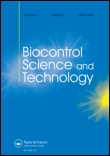
BIOCONTROL SCIENCE AND TECHNOLOGY
Cultivating Sustainable Practices Through Rigorous ResearchBIOCONTROL SCIENCE AND TECHNOLOGY is a premier, peer-reviewed journal published by Taylor & Francis Ltd that specializes in the dynamic fields of Agronomy and Insect Science. Established in 1991, this journal has garnered a reputation for disseminating high-quality, impactful research with an impressive 2023 Scopus rank of 53 out of 181 in Insect Science and 153 out of 406 in Agronomy, placing it in the Q2 category for both fields. With its ISSN 0958-3157 and E-ISSN 1360-0478, the journal serves as a vital resource for researchers, professionals, and students dedicated to advancing understanding and innovation in pest management and biocontrol strategies. Although not an open-access journal, it offers comprehensive insights that are crucial for professionals aiming to tackle agricultural challenges and enhance food security. The journal’s continuous coverage from 1991 to 2024 ensures that it remains at the forefront of significant advancements in biocontrol, making it an essential read for anyone interested in sustainable agricultural practices and integrated pest management.

Revista Caatinga
Advancing Science, Enriching CommunitiesRevista Caatinga is a premier open-access journal published by Universidade Federal Rural do Semi-Árido (UFERSA), dedicated to the dissemination of significant research within the field of Agricultural and Biological Sciences. Since its inception in 2006, the journal has aimed to bridge the knowledge gap in various aspects of agricultural practices and biological phenomena, making vital contributions to the scientific community. With its publications indexed in Scopus and holding an impressive Q2 categorization in the competitive landscape of agricultural sciences, the journal ranks within the top half of its category (100/221), demonstrating a commitment to quality scholarship. The journal is based in Brazil and covers a wide array of topics relevant to both local and global agricultural challenges. By fostering open access, Revista Caatinga ensures that vital research is available to a broad audience, promoting knowledge sharing and collaboration among researchers, practitioners, and students around the world.
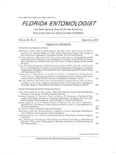
FLORIDA ENTOMOLOGIST
Unraveling the Mysteries of Entomological ResearchFLORIDA ENTOMOLOGIST is a prestigious peer-reviewed journal dedicated to the advancement of entomological sciences, published by Walter de Gruyter GmbH. Since its transition to open access in 1994, the journal has become a vital resource for researchers, students, and professionals in the fields of Insect Science and Ecology, Evolution, Behavior, and Systematics. With an impact factor ranking high in its category—Q2 in Insect Science and Q3 in Ecology, Evolution, Behavior and Systematics—the journal showcases significant findings and contributions that shape our understanding of insect biology and its implications for ecological systems. The journal is indexed in Scopus, further establishing its relevance, with current rankings reflecting its competitive standing within Agricultural and Biological Sciences. Published continuously since 1982, FLORIDA ENTOMOLOGIST not only facilitates the dissemination of knowledge among entomologists but also encourages interdisciplinary collaboration, making it an essential publication for anyone invested in the scientific study of insects.
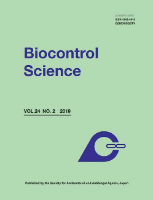
BIOCONTROL SCIENCE
Empowering research to combat global health challenges.BIOCONTROL SCIENCE, published by the SOC ANTIBACTERIAL & ANTIFUNGAL AGENTS in Japan, is an esteemed journal that focuses on the dynamic fields of Applied Microbiology and Biotechnology, as well as Public Health. With an ISSN of 1342-4815 and an E-ISSN of 1884-0205, this journal has been an important platform for disseminating research findings, contributing to its recognized Q3 quartile ranking in both fields as of 2023. Although the journal's H-index is yet to be established, its coverage from 1996 to 2022 showcases a solid foundation of scholarly works in biocontrol mechanisms, antifungal and antibacterial strategies, and their implications for health and the environment. Researchers and professionals will find valuable access options, further enhancing the journal's reach and impact within the scientific community. The journal serves as a critical resource, promoting knowledge sharing and innovation in tackling global health challenges, fostering interdisciplinary collaborations, and encouraging impactful research in biocontrol technologies.
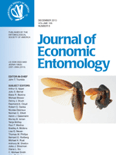
JOURNAL OF ECONOMIC ENTOMOLOGY
Fostering Interdisciplinary Dialogue on Insect ImpactJOURNAL OF ECONOMIC ENTOMOLOGY, published by OXFORD UNIV PRESS INC, stands as a premier interdisciplinary platform for researchers and professionals in the realms of entomology and ecological sciences. With a robust publication history dating back to 1945, this esteemed journal has consistently maintained its reputation for disseminating high-quality research, as evidenced by its prestigious Q1 rankings in both Ecology and Insect Science for 2023. The journal’s impact is highlighted by its excellent Scopus ranks, placing it in the top percentile of Agricultural and Biological Sciences and Environmental Science categories. Aimed at advancing the understanding of insects and their relationships with humans and ecosystems, the JOURNAL OF ECONOMIC ENTOMOLOGY offers a critical forum for original research articles, reviews, and opinion pieces that influence practices in pest management, conservation, and agricultural productivity. Although not an Open Access journal, its findings are pivotal for students, researchers, and professionals striving to address contemporary challenges in entomology and beyond.